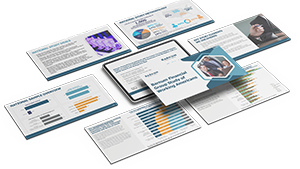
There are always pitfalls when building a financial plan. Retirement, included. Understanding and avoiding these 6 retirement mistakes will help you build a strong, secure and flexible retirement plan for you and your loved ones.
Not Writing Out Your Plan
You can tell everyone you know about your retirement plan, but have you written it down? It’s far-too-common of a mistake when pre-retirees enter their retirement without a financial plan. They may assume that social security will cover their expenses. (It covers around 40% of your pre-retirement income) Typically, you’ll need around 70% of your pre-retirement income to continue your lifestyle uninterrupted. Create a plan. Write it down. Understand the plan. Adjust it as needed and stick to it.
Counting on Investment Returns in Your Plan
Everyone thinks big when it comes to the stock market, but recent events (and historical examples) have shown us that the market doesn’t cooperate with our lofty expectations. Don’t count on the stock market to provide growth in your retirement plan. Take on a conservative approach to market performance. You should also keep 12-24 months in cash available in your portfolio to address market corrections and get you through potential bear markets.
Making Risky Investments
Just as important that you spent years building a retirement fund, it’s equally important to protect it. Before you make any decisions on investment opportunities, have a financial professional review your plan and your investment strategy. Understand your portfolio. You may think it’s conservative and that protection is already in place, but what if you’re wrong? Take measure of your portfolio’s vulnerability when it comes to potential market downturns. Work with your financial professional to build a proper investment strategy, designed to help achieve your goals and protect your assets at the same time.
Being Too Frugal
You should always make sure your retirement fund is protected, but there’s such a thing as too much protection. You saved this money for a reason. To enjoy retirement. Don’t let the idea of spending your money stop you from actually spending your money. You created a budget to allow for vacations, holidays, visits with your family and much more. Get out there and have fun.
One way to maximize your retirement fund could be to create different funds:
- Emergency/Safety Fund: Money you have access to at any time.
- Income Fund: Reliable income streams protected from investments for bill pay.
- Growth Fund: Riskier assets and investments to build your wealth and counter market corrections.
Giving Your Children Money Too Soon
Leaving a legacy and providing for your beneficiaries is always of high importance, but you can’t do that if you don’t take care of yourself first. Your retirement finances don’t exist solely for your loved ones after you pass away. They are meant for you and your quality of life. It’s noble to want to pay off your children’s student debt or co-sign a loan for their new home. But you shouldn’t take on the financial responsibilities of others if it’s at risk of damaging your retirement fund. Review your budget with your financial professional before making any decisions on providing for your children while you’re still in retirement.
Leaving it All for Your Financial Professional
You’re paying for a financial professional to guide you through a retirement plan. They can build that plan and enact it, but you still need to understand it. Don’t be an inactive participant in that process. Ask questions. Understand the strategy you and your financial professional have agreed upon. Don’t assume that you’re always on the same page. The world changes. Plans need to be flexible. Your financial professional may have information that you do not, so making sure you’re both on the same page is paramount.




